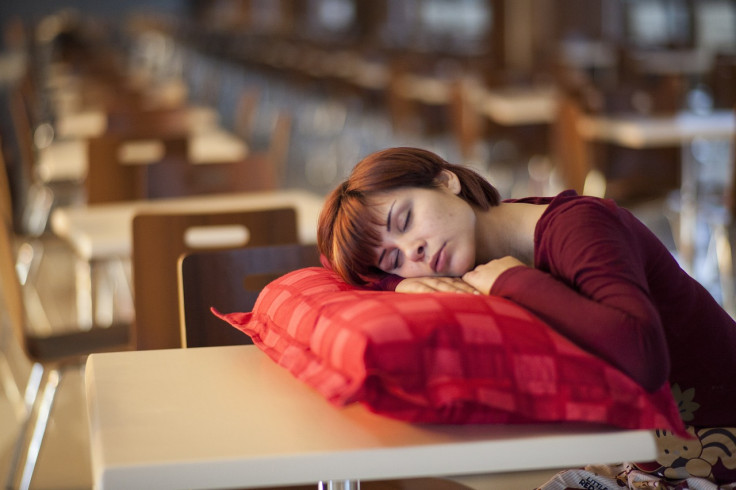Rare Disorder Puts Nurse To Sleep For Days At A Stretch; Know All About Kleine-Levin Syndrome

Bella Andreou, a nurse from the U.K., is afraid to go to bed as she might sleep at a stretch and won't wake up for days. The 24-year-old suffers from Kleine-Levin syndrome, a rare disorder that is also known as "sleeping beauty syndrome."
Kleine-Levin syndrome is an exceptionally rare condition in which a person experiences recurrent episodes of hypersomnia (excessive sleep), behavioral changes, compulsive eating behavior and hypersexuality (increased sex drive).
Andreou, from Newcastle in northeastern England, has been experiencing episodes of excessive sleeping for the past seven years. After numerous scans and tests to rule out other conditions such as tumors, cancers and epilepsy, she was diagnosed with Kleine-Levin syndrome in September, news outlet Devon Live reported.
When Andreou first experienced it in 2016, she dismissed it as a hangover, even though it left her with brain fog and she slept for over 10 days. Andreou got repeated episodes the next year that put her to sleep for seven to 10 days at a time.
Although sleeping at a stretch for days and waking up may sound like a fairytale, Andreou describes her condition as "a living nightmare."
"It's often called Sleeping Beauty syndrome, which it really isn't. It's anything but Sleeping Beauty, it's more like a nightmare," Andreou told news outlets. "I'm a very independent person. I'm very bubbly and outgoing, but when an episode hits I become the complete opposite. I become very childlike. I talk like a baby and I'm needy."
"The only way I get out of my episodes is always a night of insomnia. Then I get up the next morning and that's it - I'll be right as rain again. But I really struggle with bedtime and going to sleep because of the fear of whether I'm going to wake up tomorrow. Sleep for me is a huge issue," she added.
Signs of Kleine-Levin syndrome
In addition to extreme sleepiness, people with the disorder experience increased appetite, irritability, confusion, anxiousness, depression and hallucinations. The symptoms might last for at least two days or even weeks.
During an episode of the disorder, the person might be able to wake up briefly to eat or use the restroom but may have limited physical function due to excessive sleepiness and may not remember what happened.
Causes and treatment
Although the exact cause of the disorder is not known, some people have a genetic predisposition for it. Kleine-Levin syndrome is believed to be due to a malfunction of the brain that regulates sleep, appetite and body temperature. Factors such as stress, exertion, alcohol and might trigger an episode.
There is no definitive treatment and medication for Kleine-Levin syndrome. The use of supportive therapy and medications such as steroids and stimulants may help some people manage the symptoms.



























